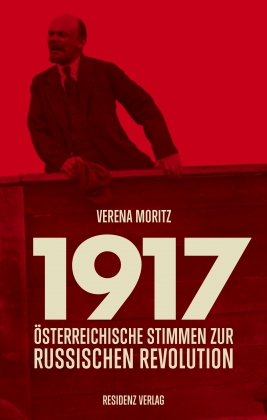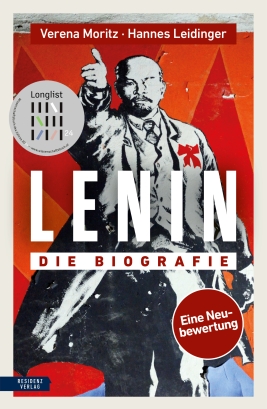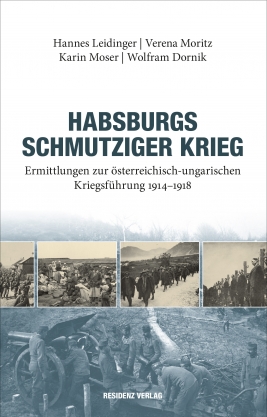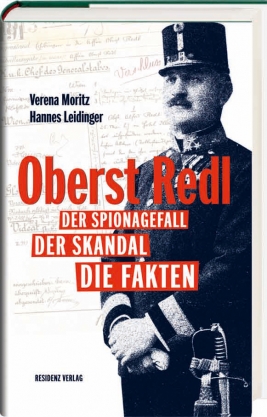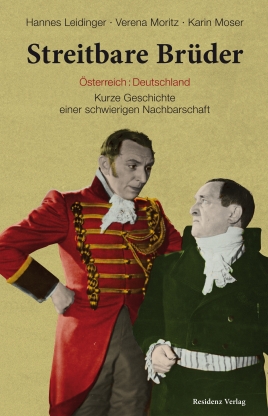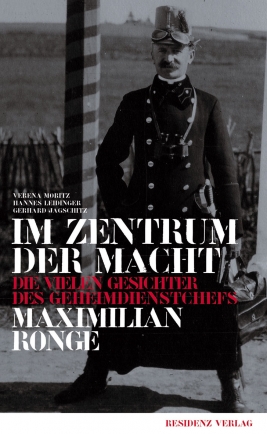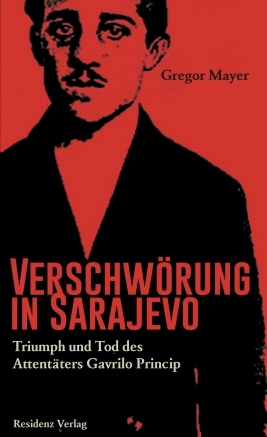Verena Moritz veröffentlicht in diesem Buch viele interessante Zeitdokumente und liefert damit ein anschauliches Bild vom Ende der beiden Kaiserreiche.
[Quelle: Rüdinger Opelt, AMAZON]
Gerade diese „frischen Eindrücke“ von österreichischen Staatsbürgern sind von besonderem Interesse, waren sie doch zum Zeitpunkt ihres Entstehens noch frei von Abwägungen und Zuschreibungen. Lesenswert!
[Quelle: Lisa Moser, VOLKSSTIMME]
Die Historikerin Verena Moritz hat für ihr Buch 1917 – Österreichische Stimmen zur Russischen Revolution großteils unpublizierte Dokumente zusammengetragen: (…) Entstanden ist daraus keine klassische Quellenedition, sondern die gut lesbare Geschichte einer Monarchie, die in den letzten Zügen lag und gebannt auf die Ereignisse im Osten blickte.
[Quelle: Florian Gasser, DIE ZEIT]
äußerst packende, vielschichtige Analyse eines Epochenbruchs
[Quelle: Bernadette Lietzow, TIROLER TAGESZEITUNG]
Der wichtigste politische Umsturz des 20. Jahrhunderts aus österreichischer Sicht gut lesbar dargestellt. Eine Zeitreise in eine unruhige Epoche.
[Quelle: SCHWARZA TALER]
Lesenswert!
[Quelle: Lisa-Carina Moser, MITTEILUNGEN ALFRED KLAHR GESELLSCHAFT]
Die vorgenommene “Mischung“ von Originaldokumenten und erklärenden Texten macht es auch interessierten Nicht-Historikern leichter möglich, die österreichischen Reaktionen auf die Russische Revolution aus erster Hand zu erfahren und zu verstehen; sehr hilfreich dafür erweisen sich auch eine Chronologie sowie Kurzbiographien aller erwähnten Akteure.
[Quelle: Karl Krendl, BIBLIOTHEKSNACHRICHTEN]
Die Wiener Historikerin Verena Moritz, eine der profundestens Kennerinnen der russisch-sowjetischen Geschichte, hat in einem aufwändigen Forschungsprojekt österreichische Zeitzeugenstimmen zu den Ereignissen des Jahres 1917 gesammelt: Herausgekommen ist eine faszinierende Sammlung von Tagebucheintragungen, Briefen, Zeitungsberichten, diplomatischen Depeschen und anderem bisher unveröffentlichten Material. In Verena Moritz' eindrucksvoller Quellensammlung werden die Geschehnisse des Jahres 1917 - gewissermaßen im Cinemascopeformat - noch einmal lebendig. Ein historiografisches Ereignis.
[Quelle: ORF, SALZBURGER NACHTSTUDIO]
…reichhaltiges Netz zeitgenössischer Stellungnahmen und Wahrnehmungen. Man ist bei der Lektüre mitten im Fluss des Geschehens.
[Quelle: Alexander Kluy, DER STANDARD]
Die österreichische Historikerin Verena Moritz (…) hat gründlich recherchiert, mehrjährige Forschungsaufenthalte in Russland absolviert und jetzt mit ihrer Studie (…) dargelegt, wie in der österreichisch-ungarischen Monarchie die Revolution vom Februar und Oktober 1917 aufgenommen wurden. Die Russland Kennerin präsentiert und kommentiert in ihrer Analyse bislang unveröffentlichte Quellen und Dokumente aus dem Staatsarchiv, Tagebucheintragungen und Zeitungsberichte zum Thema.
[Quelle: Günther Haller, DIE PRESSE]
Die Historikerin Verena Moritz hat für ihr neues Buch die österreichischen Reaktionen auf die Vorgänge im revolutionären Russland vor genau 100 Jahren zusammengefasst und dabei zahlreiche bisher unveröffentlichte Dokumente zutage gefördert: Botschaftsdepeschen, Berichte von heimgekehrten Kriegsgefangenen, Akten des k. u. k. Armeeoberkommandos.
[Quelle: Herbert Lackner, PROFIL]
Wie im kaiserlichen Wien die russische Revolution gesehen und verstanden wurde.
[Quelle: Jörg Baberowski, FRANKFURTER ALLGEMEINE ZEITUNG]
